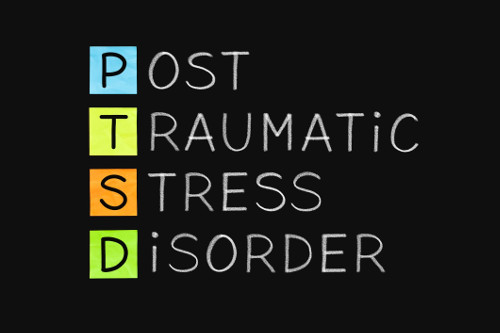Learn About a Revolutionary New PTSD Treatment in Chicago, IL!
In the US, we talk about PTSD like it’s an unbreakable curse. People often label people seeking PTSD treatment as “damaged goods” and assume they will never recover.
Now, with a new method of PTSD treatment called the body LENS, all that might change.
Here’s a breakdown of the causes of PTSD and how the body LENS treats the disorder.
What Causes PTSD?

PTSD stands for Post Traumatic Stress Disorder.
Post-Traumatic Stress Disorder, or PTSD, occurs after trauma. Symptoms include:
- Constant feelings of agitation, irritation, jumpiness, anger, or alertness
- Difficulty sleeping
- Difficulty concentrating
- Emotional numbness
- Flashbacks and nightmares
For a long time, people thought that PTSD was a psychological issue. However, recent research suggests it’s a physical and neurological problem.
How the Disorder Begins
PTSD results from a very natural neurological response commonly known as “fight, flight, or freeze.” A nerve bundle at the base of your neck called the stellate ganglion regulates this reflex. It alerts your body of impending danger by triggering the release of stress hormones including cortisol and adrenaline.
This burst of emergency-response hormones frequently empowers people to accomplish incredible feats. For example, a mother may lift a car to save an endangered child. However, when the nervous system experiences trauma, the nerve bundle can get stuck detecting danger even when there is none.
As a result, a flood of stress hormones constantly torments PTSD sufferers. And their bodies remain in perpetual “fight, flight, or freeze” mode.
The Traumatic Roots of PTSD
Many kinds of trauma can cause PTSD. Those include:
- sexual assault
- physical assault
- child abuse
- military combat
- natural disasters
- car accidents
- witnessing death or injury
We often think of veterans as the most common victims. However, they only make up a fraction of the millions of Americans who need PTSD treatment.
Most PTSD patients are women. In fact, women are more than twice as likely as men to suffer from PTSD. This is due to higher rates of sexual assault and child sexual abuse among women than among men. Even among veterans, 71% of female military personnel develop PTSD due to sexual assault within the ranks.
How Does PTSD Treatment Work?

Our PTSD Treatment helps you retake control of your brain!
One of the services we offer at Critical Thinking for Success is neurofeedback. It’s a form of biofeedback where we measure your brain activity and show it to you on a display. We use this to help you train your brain to regulate your brainwaves for more desirable patterns.
However, PTSD treatment differs from neurofeedback in a few ways. One of the key differences is the device we use, called the body LENS (Low-Energy Neurofeedback System). By attaching it directly to the stellate ganglion, we can measure the electrical activity within the nerve bundle.
A damaged nerve sends electrical signals to other parts of the nervous system at inappropriate times. Using the body LENS, we can help it relearn how to regulate itself.
Once we measure nerve activity, we can transmit signals to the ganglion and offset to a more desirable frequency. In effect, the electrical activity within the nerve bundle shifts to imitate the frequency we’re sending through it.
This PTSD treatment relieves the stellate ganglion of its stress and returns it to normal. It can now start self-regulating again.
What Are the Benefits of PTSD Treatment?
Most patients who’ve received our PTSD treatment now report sleeping better, feeling more relaxed, and staying more focused. In many cases, their PTSD symptoms have largely disappeared, often for good.
When Bob Kauffman developed this treatment, his goal was simply to reduce the effects of PTSD. However, one of the side benefits of his innovative technique is it’s much less expensive and invasive than similar procedures. It’s just one more reason many patients may choose this treatment over other options.
Do you have PTSD resulting from a trauma? If so, then contact Critical Thinking for Success to discuss our new PTSD treatment. Bob Kauffman has helped numerous patients retake control of their lives. Are you ready to take control of yours?

